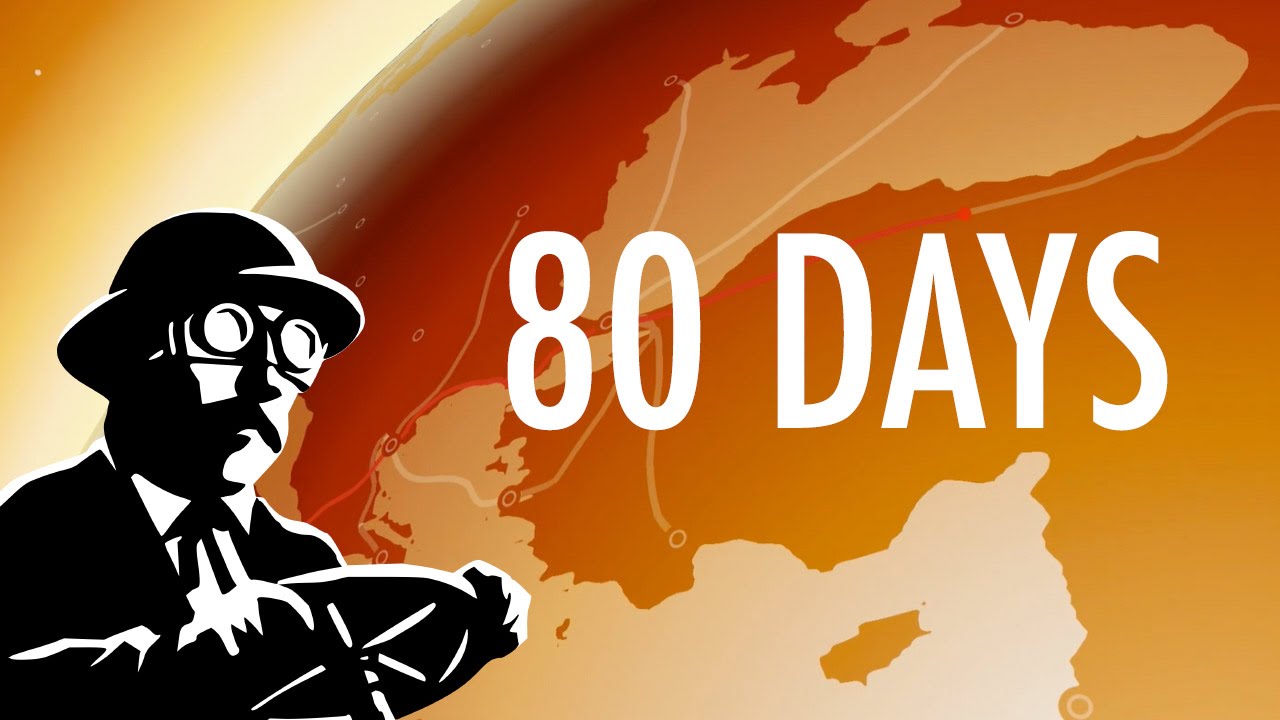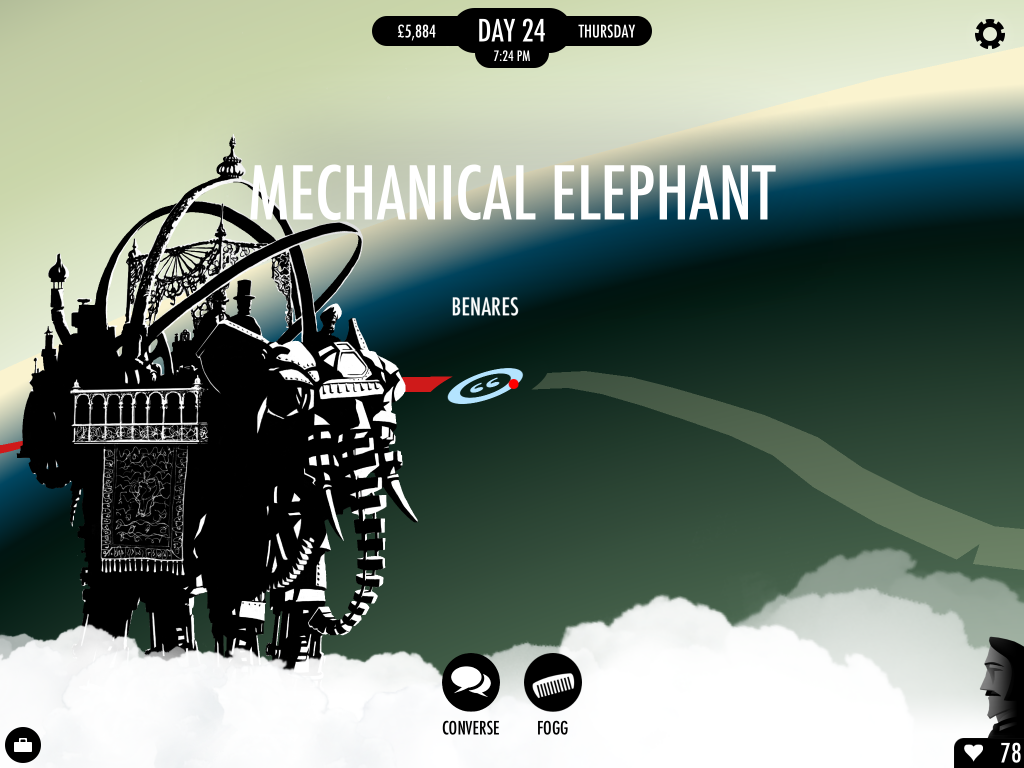Jason recommends: “80 Days”

I don’t use this space to recommend mobile games too often, because, let’s face it, the vast majority of mobile games are just utter, utter crap. While the PC side of the gaming world has seen a remarkable efflorescence of creativity over the last five years, mobile gaming over that period has been marked by a race to the bottom, driven by customers whose willingness to spend money tops out around 99 cents and app stores that put no effort into helping original, unique ideas get the attention they deserve. The result is a grim wasteland of barely playable dreck, usually larded down with come-ons for “in-app purchases” so that the game you downloaded because it was “free” turns out to cost $200 if you actually want to play the damn thing. And in those rare cases where someone does come up with an original idea, it is promptly buried in an avalanche of cheap-o copycats.
It’s all pretty depressing.
But I have recently come across one title that I found was very creative, fun to play, and reasonably priced, so I wanted to do my bit to draw your attention to it. That title is 80 Days, from UK-based inkle studios.
80 Days is a clever riff on a classic piece of literature, Jules Verne’s 1873 novel Around the World in 80 Days. In the novel, English gentleman Phileas Fogg, inspired by the late 19th century’s spread of modern transportation systems like railroads and steamships, accepts a wager that he can circumnavigate the globe, starting and ending at London’s Reform Club, in the titular eighty days. The novel then follows Fogg and his newly hired valet, Frenchman Jean Passepartout, as they try to win that bet.
In inkle’s game, the novel provides the basic concept: you, the player, starting at London with £4,000 and a choice of beginning your journey by going to Paris or Cambridge, must find your way around the world in the time allotted. However, 80 Days uses the novel more as inspiration than as a fixed script. Starting from the novel, it builds its own wildly creative world.
First, each city you travel to offers multiple connections to others, so you can build any itinerary you wish; you are not fixed to the one Verne set for his protagonists. You can follow the novel’s course across Suez to India, or take the Trans-Siberian Express or mountain trails through Turkey and Pakistan; you can cross the United States, or make the long sea voyage through the Panama Canal, or find your way across South America. Each new connection has factors in its favor and factors against: your money is precious — especially since drawing more funds from a bank can require waiting for days for approval to arrive from London — but fast routes are available to the traveler who can afford a ticket. So each connection opens up new choices you have to make to keep moving forward.

Tired of squeezing into coach? Upgrade to a mechanical elephant instead
Second, inkle’s 80 Days is set in a Victorian world, that, while mostly like the novel’s, also departs from history in fun, steampunkish ways. Airships and rockets ply the skies, while steam-powered cars trundle from city to city. One city in India has itself been lifted in its entirety onto mechanical legs, offering a precious free connection across the subcontinent for the traveler lucky enough to find it.
Third, 80 Days is, at heart, a work of interactive fiction — which means that each new connection plays out with its own mini-stories, as you scramble around each city trying to find a means to get to the next one. None of the connections are shown to you at the game’s beginning; you have to uncover them, either by buying maps and route tables, or in conversation with people you meet. And these conversations yield up a wonderful array of colorful characters, all with their own problems and desires, which can pull you off course in unexpected directions. But if your only experience with IF games has been the daunting, text-only games of old, don’t let 80 Days’ heritage scare you off; it’s lavishly illustrated, with a gorgeous interactive world map and great art for each new city and mode of travel you encounter.
What’s most interesting about 80 Days’ design is the way it creates a sensation that you don’t often encounter with IF games of any kind: urgency. In this game the clock is always ticking, so you can’t always leisurely consider your next choice. Take too long weighing which train to take, and you may find they’ve all left the station, costing you another precious day. A ride on a rickety steam-shovel may seem less appealing than a berth in a luxury clipper ship — but if the shovel is leaving today and the ship isn’t leaving for four days, you may find yourself reconsidering. This tension makes the game a kinetic experience, where your own momentum carries you into adventures you might otherwise never discover.
80 Days is available now in the Apple, Android and Amazon app stores for $5.00. It’s telling how that seems like a lot for a mobile game, but this is one that’s well worth the price.
